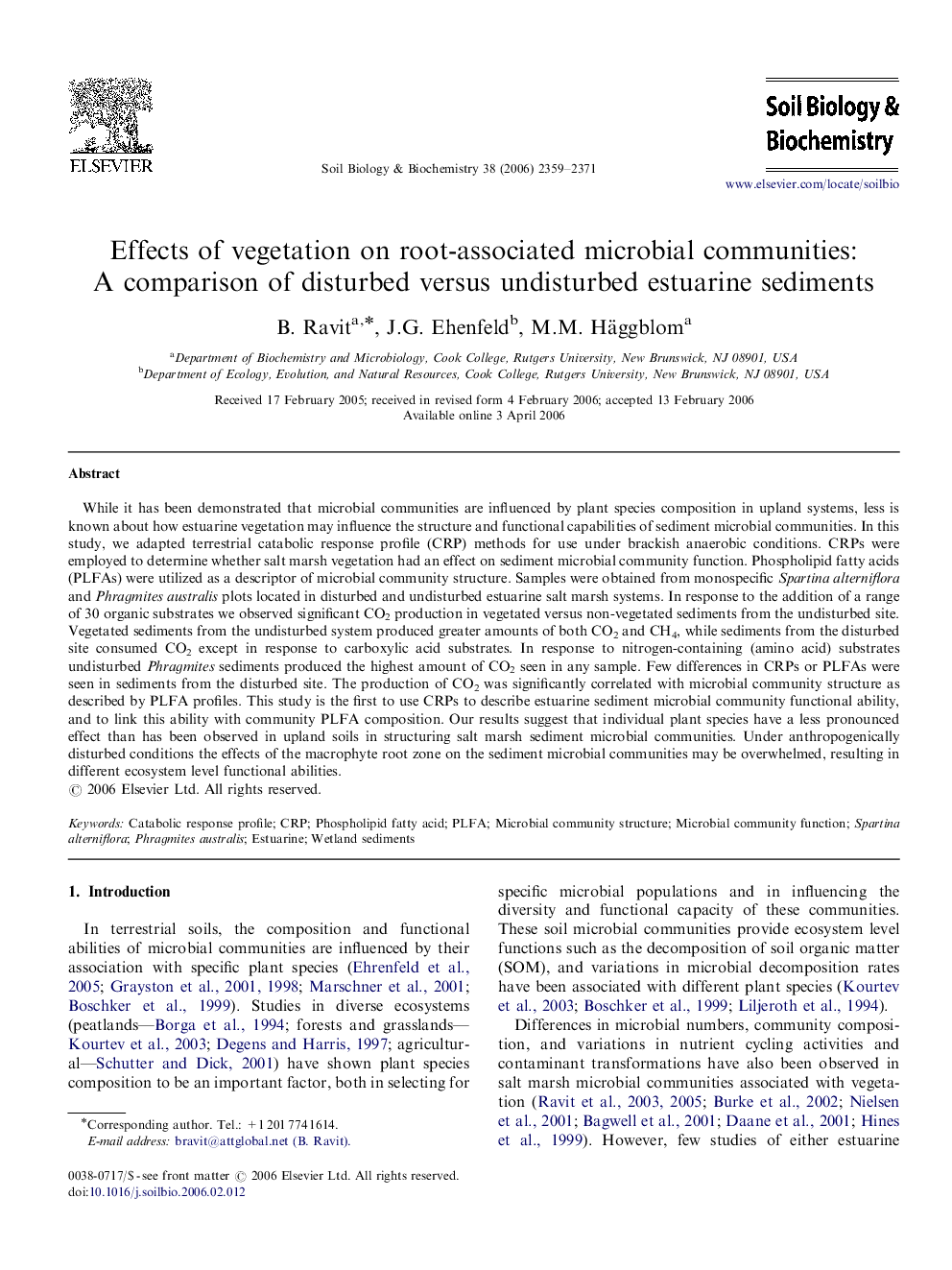| کد مقاله | کد نشریه | سال انتشار | مقاله انگلیسی | نسخه تمام متن |
|---|---|---|---|---|
| 2027203 | 1070097 | 2006 | 13 صفحه PDF | دانلود رایگان |

While it has been demonstrated that microbial communities are influenced by plant species composition in upland systems, less is known about how estuarine vegetation may influence the structure and functional capabilities of sediment microbial communities. In this study, we adapted terrestrial catabolic response profile (CRP) methods for use under brackish anaerobic conditions. CRPs were employed to determine whether salt marsh vegetation had an effect on sediment microbial community function. Phospholipid fatty acids (PLFAs) were utilized as a descriptor of microbial community structure. Samples were obtained from monospecific Spartina alterniflora and Phragmites australis plots located in disturbed and undisturbed estuarine salt marsh systems. In response to the addition of a range of 30 organic substrates we observed significant CO2 production in vegetated versus non-vegetated sediments from the undisturbed site. Vegetated sediments from the undisturbed system produced greater amounts of both CO2 and CH4, while sediments from the disturbed site consumed CO2 except in response to carboxylic acid substrates. In response to nitrogen-containing (amino acid) substrates undisturbed Phragmites sediments produced the highest amount of CO2 seen in any sample. Few differences in CRPs or PLFAs were seen in sediments from the disturbed site. The production of CO2 was significantly correlated with microbial community structure as described by PLFA profiles. This study is the first to use CRPs to describe estuarine sediment microbial community functional ability, and to link this ability with community PLFA composition. Our results suggest that individual plant species have a less pronounced effect than has been observed in upland soils in structuring salt marsh sediment microbial communities. Under anthropogenically disturbed conditions the effects of the macrophyte root zone on the sediment microbial communities may be overwhelmed, resulting in different ecosystem level functional abilities.
Journal: Soil Biology and Biochemistry - Volume 38, Issue 8, August 2006, Pages 2359–2371